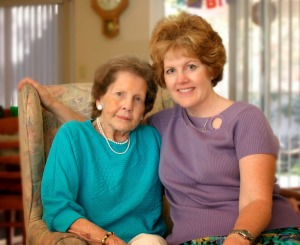 Do you have a parent, grandparent or dear friend you think has a great story? Here’s a few things I’ve learned, both by what I did right, and what I could have done better.
Do you have a parent, grandparent or dear friend you think has a great story? Here’s a few things I’ve learned, both by what I did right, and what I could have done better.
1. Begin now! Life is short, and we never know how short. If there is a special person’s story you want to save, set up some times to meet as soon as possible.
2. Take a digital voice recorder. I bought one at Best Buy for about $85 last year. Ten years ago I used cassette tapes. Digital is better. Stories told in the person’s own voice are irreplaceable. Even if you don’t have time to write a story now – if you have the voice you can always write the information later. Test all equipment before you use it. One of my best interviews I forgot to press Record.
3. Begin with an outline of basic questions to get specifics facts out of the way up front, including any information that can help you research more later. It may seem basic, but make sure you have the correct date of birth, place of birth, both parents’ names (especially the mother’s maiden name) and their dates of birth/place of birth, names of relatives living or otherwise, date of marriages, military service, etc. Having specific info will be invaluable if you want to follow a family tree or need to locate copies of records.
4. Let the other person talk, but don’t be afraid to ask questions to clarify, as long as you’re not interrupting. If the talk begins with “I was born . . . ” you may want to help focus or direct the story to specific events. It’s not uncommon for the elderly to lose time sequence.
5. Ask if they have old documents, photos or objects that may be hidden away. Then ask that person to explain them. I’ve heard of relatives who find boxes of paper after someone has passed away – without the background story – the papers can be more mystery than answer.
6. Have a friend take your picture with your friend. Make a video of your friend talking. You’ll be glad you have them.
7. Make backups: scan documents into pdf, scan old photos into jpg files, save digital voice files, videos. Then, back-up your back-ups to a different location (internet backup (best), thumb drive, etc.) Don’t underestimate the value of a safe deposit box for really critical items. One of the attorneys I work for has a tragic story. His brother saved hours of interviews with a grandparent on his computer, only to have the computer hard drive fail. There was no backup, and all the interviews were lost forever.
8. Remember where you store your backups. I still have some great pictures of me and Henry Zguda. I have yet to find that super safe place I put them.
Good luck! Powodzenia!
